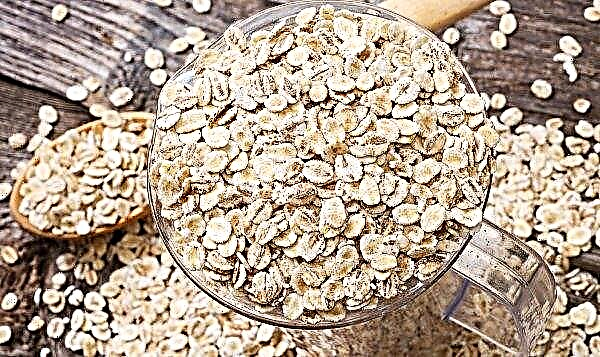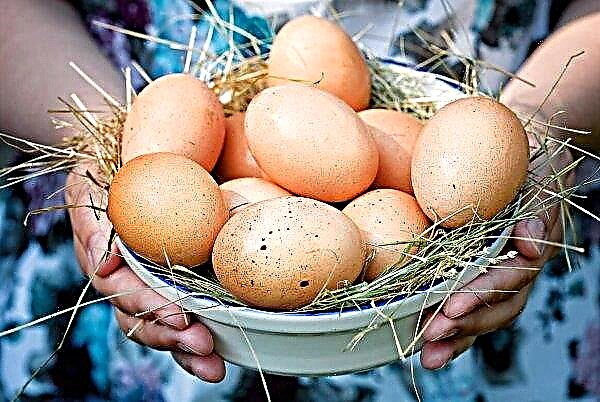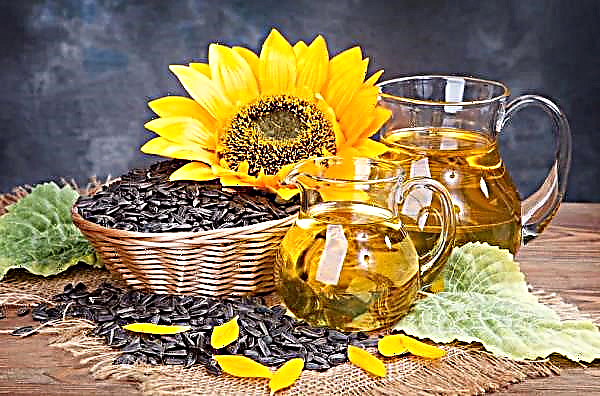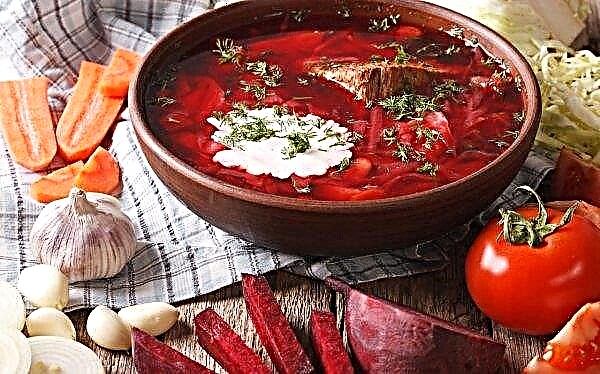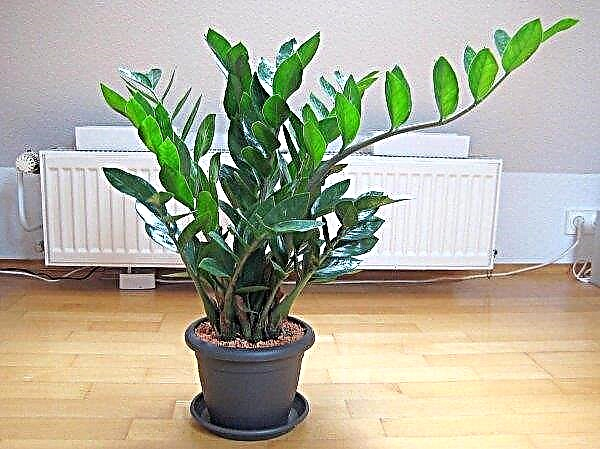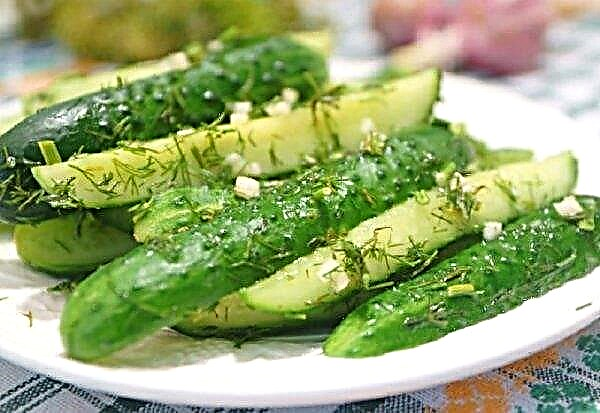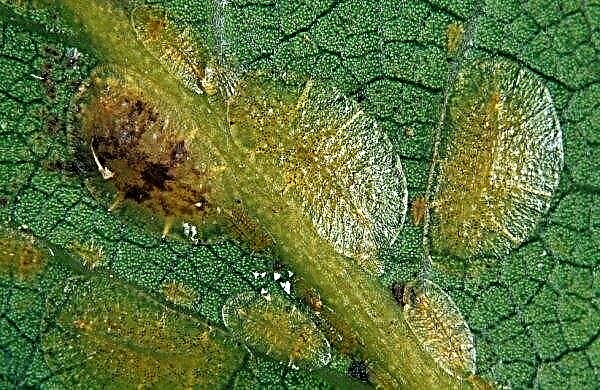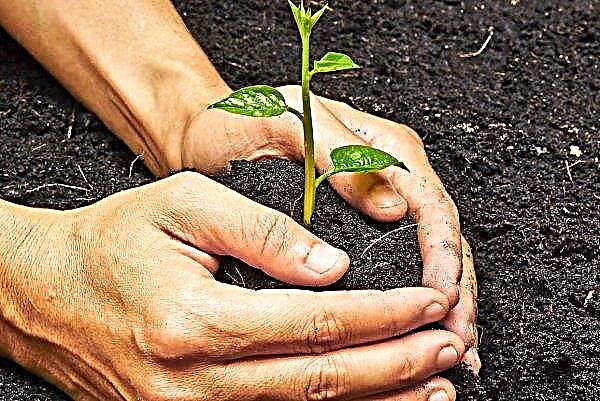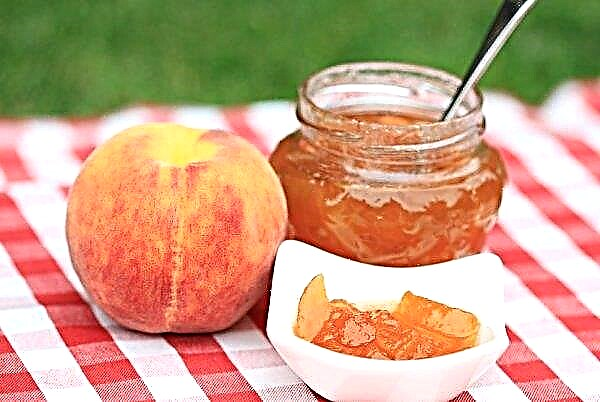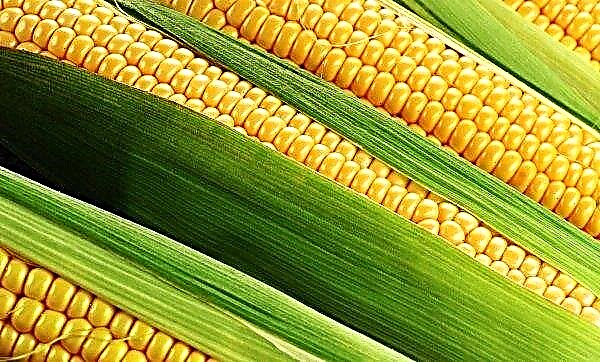During the watermelon seasons, many enjoy only the flesh of the watermelon and send the seeds to waste without thinking about their value and health benefits. But watermelon seeds are able to provide the body with a valuable set of vitamins, macro- and microelements. In this article you will find answers to frequently asked questions: is it possible to eat watermelon seeds, what will happen if you swallow them raw, how to use them in treatment, and how many calories this product contains.
Important! In 30% of men, baldness in old age is associated with a lack or poor absorption of zinc by the body.
Calorie content and chemical composition
Having a high calorie content, watermelon seeds have in their chemical composition a huge amount of rare elements and vitamins, so necessary for the life of the body. A high calorie content of 557 kcal provides a significant amount of fat. The following is the composition, energy value of the product per 100 g of edible portion and a percentage of the recommended daily allowance (indicated in brackets):
- calorie content - 557 kcal (33.1%);
- proteins - 28.4 (37.3%);
- fats - 47.5 g (79%);
- carbohydrates - 15.3 g (6.2%);
- water - 5.05 g (0.2%);
- unsaturated fatty acids — 1 g;
- ash - 4 g;
- saturated fatty acids - 9.78 g.

Macronutrients:
- calcium Ca - 55 mg (5.4%);
- magnesium Mg - 514 mg (128.8%);
- sodium Na - 100 mg (7.6%);
- potassium K - 650 mg (25.9%);
- phosphorus P - 750 mg (94.4%).
Important! One cup of product is able to provide a third of the daily calorie intake and fully satisfies the daily requirement an adult in phosphorus, copper and manganese.
Trace elements:
- Fe iron - 7.3 mg (40.4%);
- Zn Zn - 10.24 mg (85.3%);
- copper Cu - 690 mcg (68.6%);
- Manganese Mn - 1.62 mg (80.7%).
Vitamins:
- B1 (thiamine) - 0.19 mg (12.7%);
- B2 (riboflavin) - 0.15 mg (8.1%);
- B5 (pantothenic acid) - 0.35 mg (6.9%);
- B6 (pyridoxine) - 0.09 mg (4.5%);
- B9 (folic acid) - 58 mcg (14.5%);
- PP (niacin equivalent) - 3.55 mg (17.8%).

Based on the composition of vitamins and elements and the body's daily requirement, it can be concluded that watermelon seeds are able to provide the necessary balance of nutrients. For people leading a healthy lifestyle or counting calories in food, information about the calorie content of ground dried seeds in different volumes can be useful:
- a glass (200 ml) - 891.2 kcal;
- coffee cup - 601.6 kcal;
- tablespoon - 139.25 kcal;
- teaspoon - 44.56 kcal.
Did you know? When flowering on watermelon stems, female and male inflorescences blossom. The ovaries are formed only on the female flower, and the male ones serve only for pollination. Thus, all the fruits of the watermelon are “girls”.
Beneficial features
The nutritional and energy value of a product is determined by a unique combination of elements.
- Thanks to them, watermelon seeds benefit the human body:
- strengthen immunity and counteract viral diseases;
- raw watermelon seeds are used to treat helminthiasis;
- accelerate cell renewal, prevent skin inflammation, rejuvenate the body;
- reduce blood pressure, dilate blood vessels, prevent the development of coronary heart disease;
- improve digestion and the functioning of the gastrointestinal tract, help cleanse the intestines;
- lower blood sugar, strengthen the heart muscle;
- provide the necessary level of red blood cells (red blood cells), prevent anemia and atherosclerosis;
- regulate blood cholesterol;
- improve the condition of the skin, hair, nails;
- strengthen the nervous system;
- regulate acid-base balance, improve metabolism, help strengthen bones and teeth;
- prevent anemia, immunodeficiency, cirrhosis, sexual dysfunction;
- contribute to muscle building and proper bone mass formation;
- help in the treatment of infections of the genitourinary system, have a diuretic effect.
For men
In addition to the general benefits for the human body, it is worth highlighting the combination of substances in the composition of the seeds, which contribute to the purification of the genitourinary ducts and are useful for men's health:
- strengthen the function of the prostate gland associated with urination and erection;
- prevent inflammatory processes and the development of adenoma;
- regulate sexual function and increase potency;
- contribute to a set of muscle mass.

For women
For women, it is important not only a healthy state of the whole organism, but also external manifestations, therefore it is worth highlighting the beneficial properties of watermelon seeds for the fair sex not only in terms of their effect on the female body, but also on their appearance:
- fatty acids and the presence of magnesium, iron and copper in the composition of the product will provide the beauty of hair, nails and skin;
- a complex of vitamins and minerals serves to prevent acne and improve skin condition;
- for external use, crushed seeds are part of scrubs and face masks;
- during pregnancy, vitamin B9 and zinc will ensure the normal development of the baby;
- with uterine bleeding, tea from shredded seeds (20 g per glass of water) helps.
Did you know? The world's largest watermelon weighing 159 kg is grown in America and is listed in the Guinness Book of Records, and the smallest watermelon is 2×3 cm grows on an American wild Pepkunos plant.
For children
Small children under 3 years old should not give seeds for food. The presence of a large amount of protein can provoke protein poisoning, lead to intestinal upset, and high calorie content and the presence of fats can cause obesity. The presence of carbohydrates prevents the absorption of calcium, which is undesirable during the formation of the bones and teeth of the child. Do not panic if a child swallows a few seeds when eating a watermelon - the digestive system can cope with this problem without damage. But still it is desirable to remove seeds from watermelon before use by children.
Do not panic if a child swallows a few seeds when eating a watermelon - the digestive system can cope with this problem without damage. But still it is desirable to remove seeds from watermelon before use by children.
Did you know? The lycopene contained in the watermelon can protect against ultraviolet radiation and counteract the destructive power of sunlight. Of course, the use of watermelon does not cancel the use of sunscreens.
Harm and contraindications
- Like any product, watermelon seeds have, in addition to useful properties, contraindications, and in some cases can harm:
- excess zinc inhibits the absorption of copper by the body, which can lead to anemia;
- a high content of magnesium (above the daily norm) can aggravate the condition of people with cardiovascular diseases;
- the product is harmful in kidney pathology and bladder function;
- with obesity due to high calorie content;
- if you snap seeds with your teeth, then the hard shell can damage the tooth enamel;
- with gastritis and peptic ulcer, the use of seeds should be limited or completely abandoned.

Features of use
Watermelon seeds have long been consumed by people in Africa and Asia, where this product is considered very useful and nutritious. In China, for example, they are fried with different seasonings, and in Africa they are crushed and added to soups and sauces.
Did you know? All the valuable elements and nutrients of watermelon seeds are available in the form of oil, which is often called “Kalahari oil” — by the name of the region where wild relatives of the watermelon are still found.
We should think and learn how to use such a useful product:
- Sunflower seeds are used in raw form as an independent dish or added as seasoning to ready-made meals.
- It is most pleasant to eat fried or dried seeds in food, while the entire set of useful substances - vitamins, macro- and microelements, healthy fats - is fully preserved.
- Before use, watermelon seeds must be cleaned from the shell, otherwise they will not be digested and will not bring the expected benefits.
- The kernels of the seeds must be thoroughly chewed for better assimilation by the body.
- You can sprout raw bones and eat young green shoots that retain the entire set of nutrients.
- Raw bones, like a delicacy, are loved by pets (birds, rodents).

How to prepare and store
In order for the seeds to be ready for consumption, you need to know how to dry them, how to cook, how to clean them, which seeds are suitable for consumption, and how to separate immature ones:
- In a sweet and ripe watermelon, the seeds will be of the best quality in taste and size.
- The product is not afraid of heat treatment, so it can be dried in ovens or fried in a skillet.
- Before cooking, seeds need to be washed, separating the fibers and pulp of the watermelon. In this case, immature and empty seeds will emerge. They are removed, and the ones settled to the bottom are dried on a towel. Further, it is desirable to dry them in the oven or in an electric dryer for vegetables. The dried product is easier to peel.
- Fried watermelon seeds are the most delicious and popular form to eat. When frying in a pan, you can sprinkle seeds with your favorite seasonings (pepper, cinnamon, aromatic herbs), sugar or salt.
- You can clear the seeds from the outer shell like this: place them between sheets of paper and beat off slightly with a rolling pin. Then pour the product into water. The nuclei will settle to the bottom, and the shells will float to the surface.
- Store the prepared product in paper bags or woven bags, avoiding dampness.
When used wisely, watermelon seeds will serve as a good addition to the everyday diet, while providing the body with the necessary elements, creating a feeling of satiety and strengthening the immune system.

